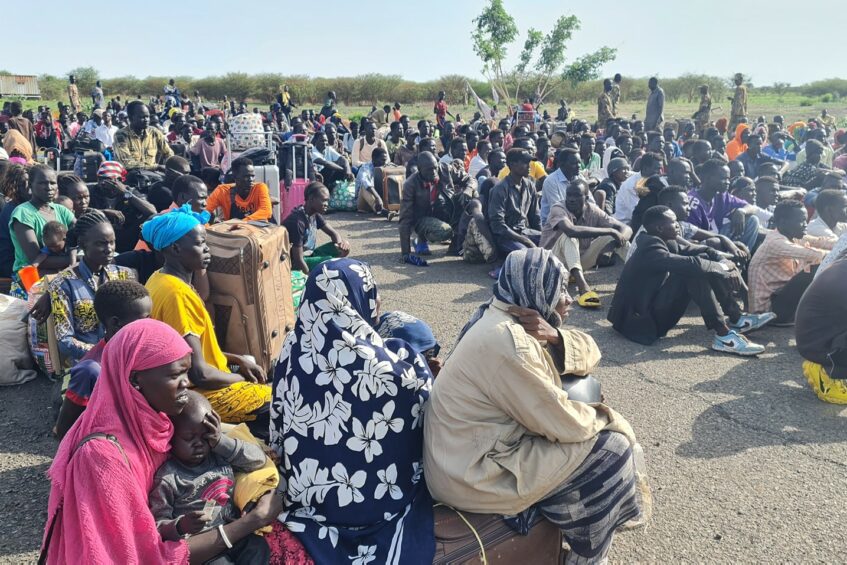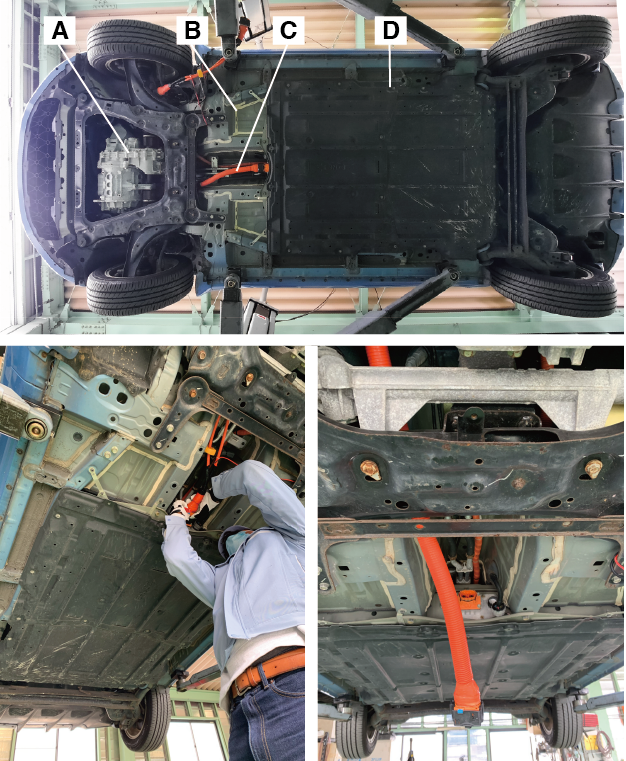US And South Sudan Partner To Manage Deportees' Return

Table of Contents
The Growing Need for Coordinated Deportees' Return
The number of South Sudanese citizens facing deportation from the US and other countries is steadily increasing. This presents significant challenges, encompassing logistical hurdles, potential safety risks for returnees, and a strain on South Sudan's already limited resources. Effective repatriation requires a comprehensive and coordinated approach, addressing the diverse needs of the returning population. The South Sudanese diaspora, spread across the globe, faces varying immigration policies and deportation procedures.
- Rising number of deportations from the US to South Sudan: The exact figures fluctuate, but reports indicate a concerning trend of increased deportations.
- Lack of adequate infrastructure and resources in South Sudan to manage large-scale repatriation: South Sudan's infrastructure, particularly in areas affected by conflict, struggles to cope with the influx of returning citizens. This includes insufficient housing, healthcare facilities, and employment opportunities.
- Concerns regarding the safety and security of returning deportees: Many deportees return to regions grappling with ongoing conflict or instability, raising significant safety and security concerns.
- Potential for social and economic instability resulting from mass returns: The sudden return of large numbers of people can exacerbate existing social and economic pressures within communities, potentially leading to instability. This requires careful planning for reintegration.
Key Aspects of the US-South Sudan Partnership
The US-South Sudan partnership on deportation management involves a multi-pronged strategy encompassing formal agreements, financial aid, technical assistance, capacity building, and robust reintegration programs. This collaborative effort aims to ensure a humane and sustainable repatriation process. The bilateral agreement, while not publicly detailed in its entirety, focuses on strengthening South Sudan’s capacity to manage the return and reintegration of its citizens.
- Financial assistance for repatriation efforts: The US provides significant financial aid to support the logistical aspects of repatriation, including transportation and temporary shelter.
- Provision of logistical support and transportation: This involves facilitating safe and efficient transportation for deportees from the US to South Sudan, often coordinating with international organizations.
- Training programs for South Sudanese officials involved in the repatriation process: Capacity building is crucial. The US assists in training South Sudanese officials on best practices in managing repatriation, ensuring a more humane and effective process.
- Development of reintegration programs to help deportees re-establish themselves in South Sudan: Successful reintegration requires providing access to essential services, including healthcare, education, and job training, helping deportees become self-sufficient.
Challenges and Opportunities in Managing Deportees' Return
Despite the collaborative efforts, managing the return of deportees presents significant challenges. Security concerns, economic integration, and social reintegration are paramount. However, opportunities exist for creating long-term sustainable solutions through enhanced collaboration and strategic planning.
- Security risks for returnees in conflict-affected areas: The safety of returnees in volatile areas remains a major concern, requiring robust security measures and careful planning of resettlement locations.
- Challenges in providing economic opportunities for returning deportees: Creating sustainable livelihoods for returnees is essential. This requires investment in job creation initiatives, vocational training, and access to microfinance.
- The need for community-based reintegration programs: Successful reintegration depends on the involvement of local communities. Community-based programs can foster social cohesion and support the reintegration process.
- Opportunities for collaboration with international organizations: International organizations like the UNHCR and IOM play a vital role in providing humanitarian assistance, logistical support, and expertise in repatriation and resettlement.
The Role of International Organizations
International cooperation is vital. Organizations such as the UNHCR (United Nations High Commissioner for Refugees) and IOM (International Organization for Migration) play significant roles in assisting with the repatriation process. Their expertise in refugee resettlement and humanitarian aid is crucial in ensuring the well-being of returning deportees. NGOs (Non-Governmental Organizations) also provide essential support, often focusing on specific needs such as healthcare, education, and psychosocial support. International cooperation ensures a more coordinated and effective response to the challenges of large-scale repatriation.
Conclusion
The US-South Sudan partnership in managing the return of deportees is a complex undertaking that requires sustained commitment and collaborative effort. Addressing the immediate humanitarian needs of returning citizens while simultaneously building long-term sustainable solutions is crucial. The challenges are significant, ranging from security concerns to economic integration and social reintegration. However, the partnership, with the support of international organizations and NGOs, strives to provide a more humane and effective repatriation process. This collaborative effort highlights the importance of international cooperation in addressing global migration challenges. Learn more about how you can support initiatives focused on the successful repatriation and reintegration of South Sudanese deportees.

Featured Posts
-
 Blue Origins Rocket Launch Abruptly Halted Investigation Underway
Apr 22, 2025
Blue Origins Rocket Launch Abruptly Halted Investigation Underway
Apr 22, 2025 -
 Chainalysis Acquires Alterya Blockchain Meets Ai
Apr 22, 2025
Chainalysis Acquires Alterya Blockchain Meets Ai
Apr 22, 2025 -
 Trumps Ukraine Proposal Kyivs Urgent Response Needed
Apr 22, 2025
Trumps Ukraine Proposal Kyivs Urgent Response Needed
Apr 22, 2025 -
 Auto Dealers Double Down On Resistance To Ev Sales Requirements
Apr 22, 2025
Auto Dealers Double Down On Resistance To Ev Sales Requirements
Apr 22, 2025 -
 Bof A On Stock Market Valuations A Guide For Investors
Apr 22, 2025
Bof A On Stock Market Valuations A Guide For Investors
Apr 22, 2025
